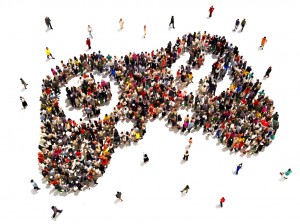Religion is Vital—in Video Games
 Photo by scottff72 / 123RF
Photo by scottff72 / 123RF What really grabs me about religious practice are the certain results we see. Prayer is answered in powerful and reliable ways. Relics import special abilities. Scriptures reveal special insights into the world. The rituals and mass devotions prescribed by clergy amplify the good. The construction of temples and protection of sacred sites pay dividends far above their cost.
I’m talking about in games, of course.
When I’ve played Civilization V or Dungeons and Dragons, or any of the other great fantasy games, I always gravitate toward the religious portions. Why not? A devout cleric or faith-track addition for a community can really make the difference in a fun afternoon with some friends. Magic power out of nowhere, community, and the promise of ever-greater rewards really enhances the game. And it’s also fun to create the “othering” of those lowly adherents of rival gods or ideologies. Just good clean fun.
None of those benefits come to pass with real world religion, however. Prayers aren’t answered. Adherents are far from unified or friendly. The othering of infidels results in ostracism, imprisonment, and even death—for example, Hamas versus Israel, the Ugandan anti- gay bill, Muslim persecution of atheists and Christians in Iraq, Syria, Indonesia, and elsewhere. And that’s just current events. The search for knowledge from scriptural sources impedes science education and social reform as people anchor themselves with outdated ideology.
If being religious means thinking deeply about what we value and aligning our actions to our values, then there’s no problem. If it means looking to the sky or to old books for solutions to our problems, then there is a problem. The hope and comfort religious beliefs often provide to believers comes at the price of not actually solving any problems.
In games, religion adds a nice bit of complexity. What we see in the real world is the exact opposite. New discoveries, advancements in our social and scientific understanding of the world, solutions to our problems, and strengthening ties across cultural barriers all happen more reliably and in a more positive way when we reject ancient faiths. It’s time for humanity to grow up and understand when to put away the games and face reality. We’ll all be better for it.
